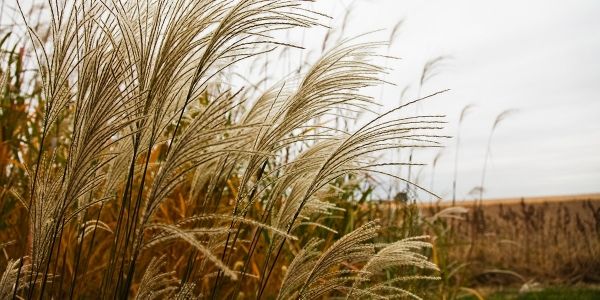Renewable bioenergy crops, such as the perennial grass Miscanthus, show promise for cellulosic ethanol production and other uses, but current hybrids are limited by environmental conditions and susceptibility to pests and diseases.
Breeders have been working to develop new Miscanthus hybrids for years, but the clonal crop’s sterility, complex genome, and long time to maturity make conventional breeding difficult. In a new study, University of Illinois researchers mine the crop’s vast genomic potential in an effort to speed up the breeding process and maximize its most desirable traits.
“The method we’re using, genomic selection, can shorten the time it takes to breed a new hybrid by at least half,” says Marcus Olatoye, lead author on the study and postdoctoral researcher in the Department of Crop Sciences at Illinois. “That’s the overall goal.”
Continue reading at University of Illinois College of Agricultural, Consumer & Environmental Sciences
Image via University of Illinois College of Agricultural, Consumer & Environmental Sciences


